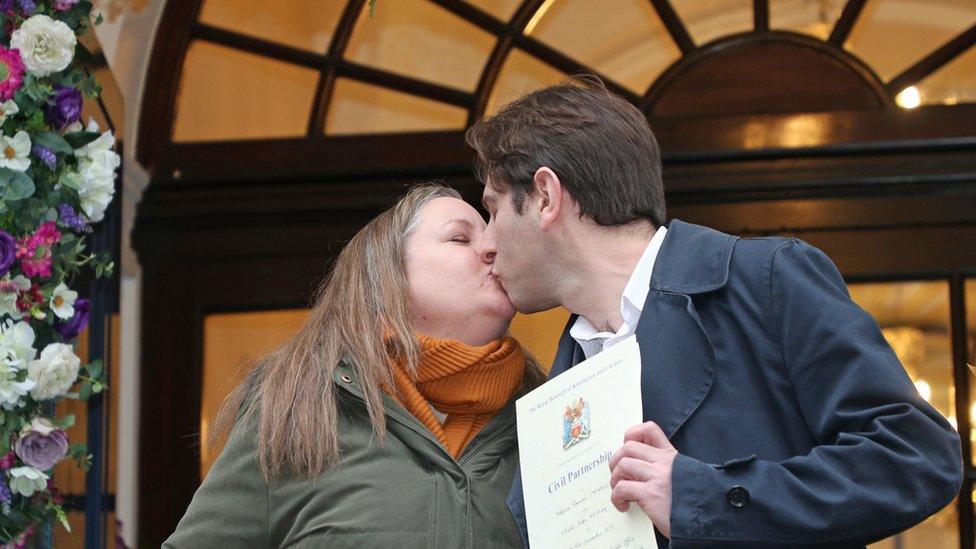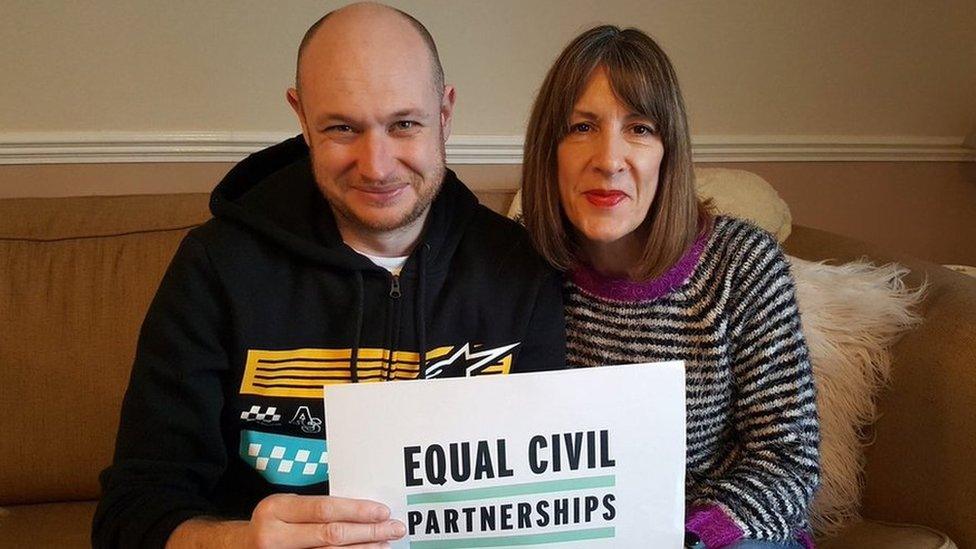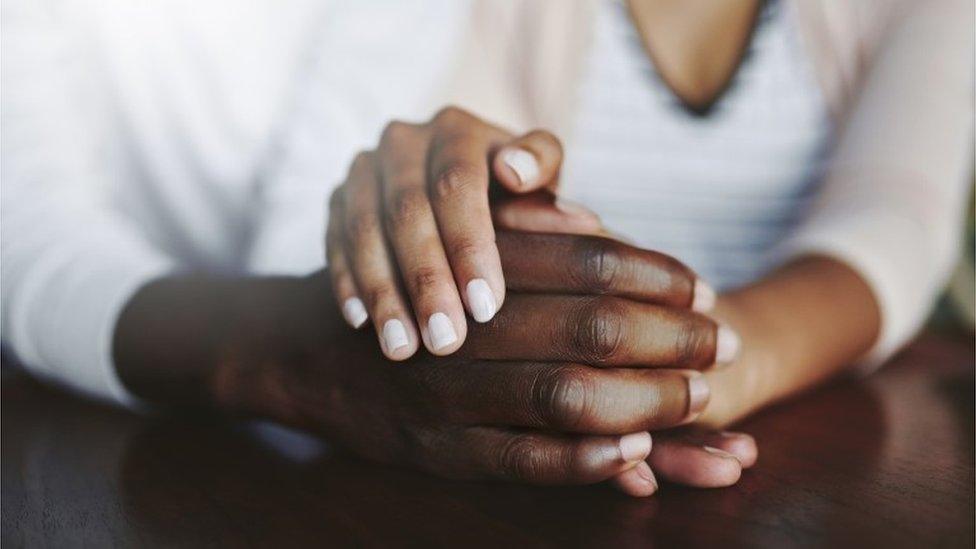Civil partnerships extended to mixed-sex couples
- Published

Rebecca Steinfeld and Charles Keidan took their fight for civil partnerships to the Supreme Court
Mixed-sex couples in Scotland are now able to enter civil partnerships after campaigners called for a change in the law.
Previously, the law only allowed same-sex couples to be civil partners.
The change follows a ruling in the Supreme Court in 2018, which found that the existing UK law went against the European Convention on Human Rights on equality grounds.
The first civil partnership in England took place in December 2019.
Rebecca Steinfeld and Charles Keidan, who won a legal battle for the right to heterosexual civil partnerships, celebrated at Kensington and Chelsea Register Office in west London.
The couple said their "personal wish" to form a civil partnership came from a "desire to formalise our relationship in a more modern way, with a focus on equality, and mutual respect".
Ms Steinfeld said it creates "new, modern possibilities" for thousands of people to express their love and commitment and ends "the unrivalled position of marriage".

The Civil Partnership Act 2004 came into force on 5 December 2005, allowing same-sex couples, who were not permitted by law to marry, to register a civil partnership.
The new law enabled same-sex couples to enjoy similar rights and responsibilities to those of a married couple.
However, at the end of 2014, the law changed to allow same-sex couples to marry.
The number of civil partnerships dropped as a result of the change from 436 to about 70 for each year after 2014.
The law change created an anomaly which meant civil partnership and marriage were available to same-sex couples but only marriage was available to mixed-sex couples.
This was challenged in the Supreme Court.
The Scottish government launched a consultation to consider either barring further civil partnerships or opening them up to opposite-sex couples.
Ministers decided to make the partnerships available to everyone.
From 1 June, it has been possible for mixed sex couples to submit a notice of intention to enter into a civil partnership.
This meant, taking into account the 29-day notice period, that the first mixed-sex civil partnerships could take place from 30 June.
Equalities Minister Christina McKelvie said the change "embedded equality of choice" to allow couples to "formalise their relationship in the way that best reflects their beliefs and ensures access to the rights, responsibilities and benefits which flow from entering a legally recognised relationship".
She added: "This ground-breaking change in law demonstrates our commitment to creating a fairer and more inclusive society for all.
"I wish good luck to all couples who are entering Scotland's first mixed-sex civil partnerships."
Related topics
- Published31 December 2019

- Published25 June 2019

- Published2 February 2018

- Published27 June 2018
